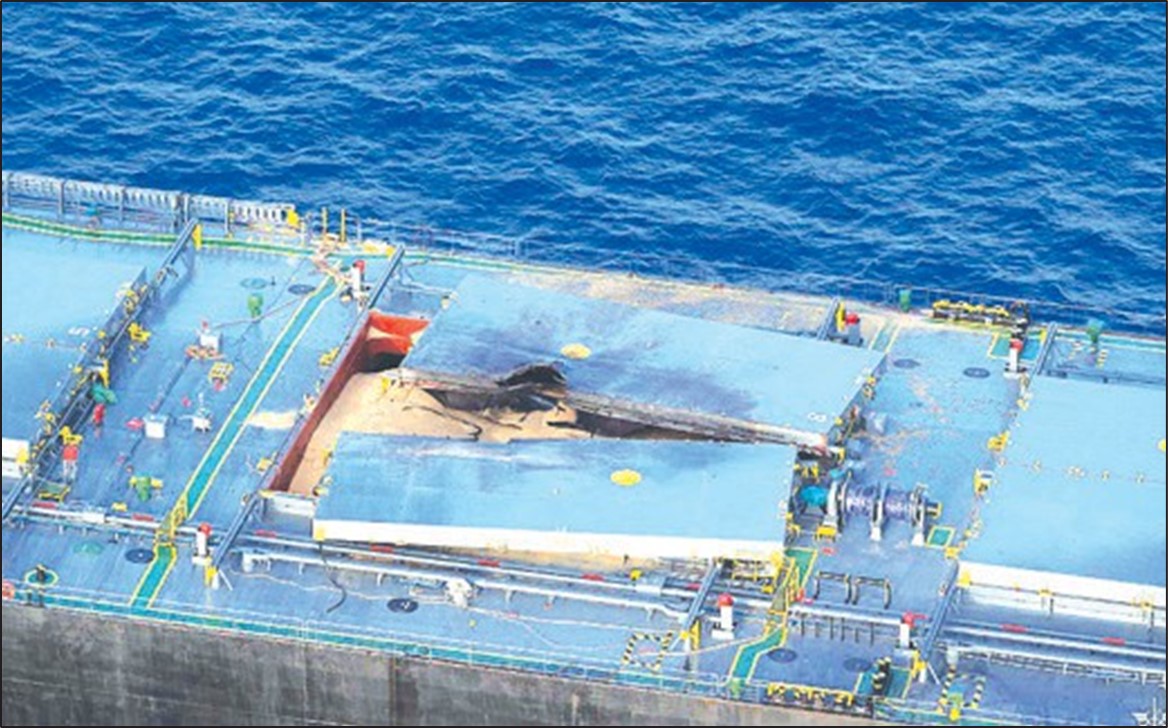July 5, 2024
The Iranian Navy has for years had a frigate stationed in the Gulf of Aden/Red Sea area to aid ships in distress. But the US Navy says that frigate, the Jamaran, did absolutely nothing June 16 when a freighter just nine statute miles away broadcast distress calls. The US Central Command said the Houthis in Yemen had fired two missiles that hit the Ukrainian-owned bulk cargo carrier M/V Verbena.

With the Gaza fighting slowing, Israel has started complaining louder about Hezbollah’s shelling of border areas in northern Israel, sparking considerable speculation of a war there that could draw in Iran. However, both Israel and Hezbollah clearly do not want a war in the region and Israel’s carping seems aimed more at trying to induce Hezbollah to stop its daily shelling, which averages only about 10 shots a day but which has required the evacuation of dozens of border villages and has caused furious locals to complain bitterly to the Israeli government because they cannot return home after nine months. The same thing has happened on the Lebanese side of the border, but the displaced villagers there don’t have the political clout of the Israeli villagers. The main military activity
that involves Iran has been the Houthi attacks on shipping in the Red Sea and Gulf of Aden, using Iranian-supplied missiles and drones. Iran denies supplying the Houthis with anything more than love and moral support. But Western navies continue to intercept small dhows carrying Iranian weaponry to the Houthis, and they clearly haven’t been able to stem much of the flow.
They have intercepted just 18 ships in nine years. The main impact of the Houthi attacks has been to reduce Egypt’s revenues from the Suez Canal by driving more ships to sail around South Africa. Every few days, US Navy aircraft from the carrier USS Eisenhower pummel launch sites in Yemen. But this has been going on since last December and clearly isn’t deterring the Houthis in any way.
The Houthis claim to have stricken 153 ships since early December. The US Central Command says the Houthis have targeted more than 50 ships, but only hit a handful, lightly damaging a few, sinking two and leaving one other, the Verbena, abandoned and adrift. The Houthis say they are targeting ships linked to Israel either owned by Israelis or taking cargo to or from Israel. But they have managed to damage two ships carrying food to Iran that have no links to Israel at all.
Many other ships targeted also report no links to Israel. Most of the missiles fired by the Houthis miss their targets. Other missiles and drones have been shot down by Western Navy vessels patrolling the area. The display has not been a particularly good advertisement for the quality of Iranian weaponry.
Many attacks have been launched on US, British and French warships patrolling the area. None of those warships has been hit as their defensive weapons have shot down every drone and missile coming near them though the Houthis claim to have struck the Eisenhower, where the rear admiral on board is Iranian American Kavon Hakimzadeh. The Associated Press drew a lot of attention by saying the US Navy was seeing its “most intense combat” since World War II in its face-off with the Houthis. That was an overstatement that ignored its role in Korea, Vietnam, Iraq and elsewhere over the decades.
Meanwhile, some of the Iraqi militias supported by Iran are making noises about wanting to resume attacks on the 14 sites in Iraq and Syria where American troops are stationed. They were ordered to stop such attacks in January by Qods Force commander Esmail Qaani, when Iran worried about the US response after an Iraqi militia attack killed three American soldiers. Instead of attacking nearby Americans, the Iraqi militias have instead been sending drones across Jordan to Israel. But since they have to fly a long distance, Israel has had an easy time tracking and downing them.
Only a few have gotten passed Israeli defenses and none of them have done any notable damage. The only thing they appear to have accomplished is to give the Israeli air defenses lots of practice. Those Israeli forces have not had much success defending against Hezbollah mortar attacks since the mortars often only travel 10 kilometers, giving Israel little time to react.
